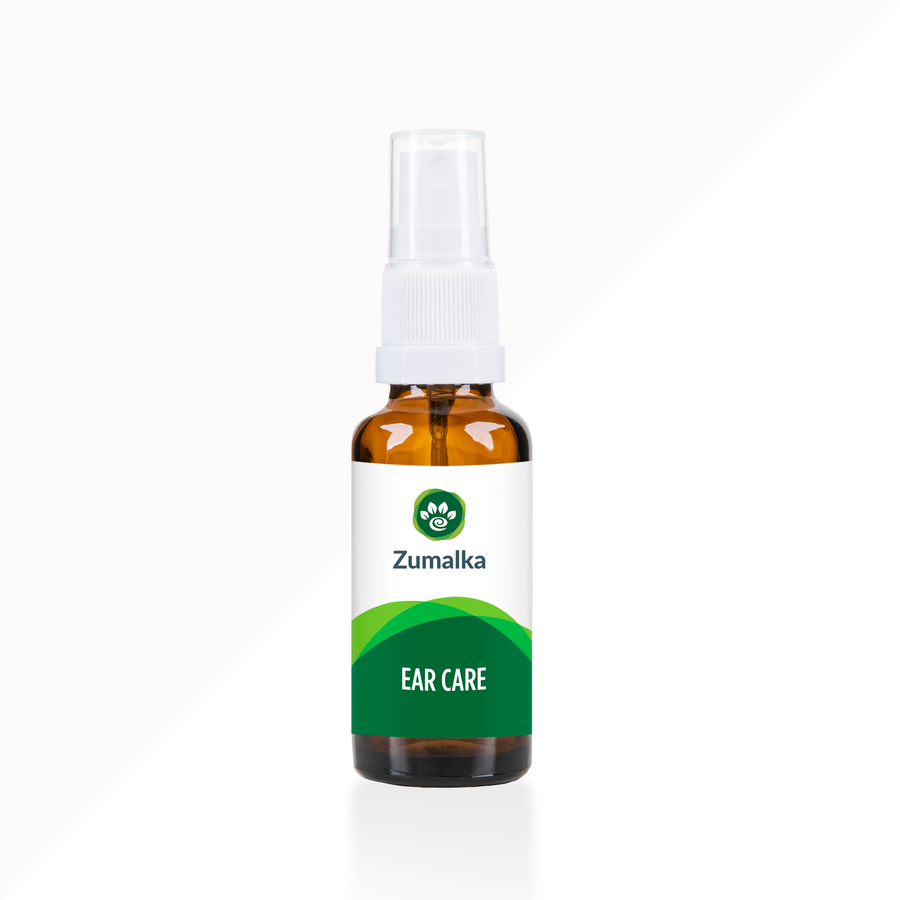Exposing These 7 Myths About Ear Mites in Cats
If you’re anything like most cat parents, chances are you’ve already dealt with an ear mite infestation once or twice. This health problem is pretty common and all cats can be prone to this issue at some point in their lives.
- Click to learn more : 👉 Provide support in EAR MITES IN CATS with our Natural Product 🐱
But here’s the thing, though. Did you know that there is a possibility that you probably believe in some misconceptions about ear mites in cats? And no, this isn’t a “you have cat to be kitten me right meow” moment.
Make sure you read on because I will debunk these cat ear mite myths one by one as we go along. How about we get right to them without further ado?
The Myths About Cat Ear Mites You Probably Believe
Myth #1: Ear mites in cats do not require urgent care and attention.

Let’s start things off with a myth that could make your feline family member prone to not just a lot of discomfort, but also very likely put him at risk of more serious health problems sooner or later.
It is crucial to give your kitty the care and attention he needs as soon as you notice that he is exhibiting symptoms of an ear mite infestation. These include persistent scratching at the ears, constant shaking of the head, as well as the presence of a black, crumbly substance in and around the ear flaps.
According to the National Center for Biotechnology Information (NCBI), not nipping a cat ear mite infestation in the bud may lead to secondary bacterial and fungal infections. Moreover, this health problem can even cause deafness if the ear mites eventually make their way into the inner ear in extreme cases.
Myth #2: Red, swollen and itchy ears automatically means ear mites in cats.

Another myth a lot of people mistakenly believe is that the presence of red, swollen and itchy ears means an ear mite infestation straight away. However, there are actually a number of other health issues that can set this off.
Apart from the presence of fungal and bacterial infections, allergies and trauma can also cause your feline family member’s ear to become red, swollen and itchy. It is even possible that the same symptoms can also be caused by foreign objects such as grass seeds and very small pebbles ending up inside your cat’s ears.
Since your kitty requires a specific type of support during an ear mite infestation, it is important to verify what you’re dealing with first to get him on the track to recovery.
Myth #3: Indoor cats cannot get ear mites.

Despite the fact that they spend most of their time inside the home, indoor felines are still very much vulnerable to ear mite infestation. Surprisingly, an indoor cat can be infested with these unwanted visitors without even making a single step outside.
One very remarkable thing about ear mites is that they can linger in various household surfaces like the carpet, drapes, beddings, as well as various pieces of furniture for 4 to 6 days until they find a target for infection—in this case your feline family member.
So long as these microscopic parasites somehow find a way inside your home, there’s a slim chance that your cat could be prone to ear mite infection.
Myth #4: Ear mites only get transmitted from one cat to another.

ScienceDirect shares that cats aren’t just the only animals that can spread ear mites. These parasites can also be transmitted by rabbits, dogs, ferrets, and rodents, among others.
It is important to take note that contamination is very likely to take place if your feline family member gets in contact with another animal that has an ear mite infestation. It could be a visiting pet dropping by your home or a playmate at the park. This is the reason why being vigilant is key in keeping these parasites at bay.
Myth #5: Cat parents cannot get ear mites from their feline family members.

Although ear mites generally infect pets like your feline family member, there are rare occasions when these parasites wreak havoc on human hosts. They won’t cause too much of a hassle other than giving you a sense of increased pressure inside the ear as well as a temporary itching fit.
However, it is still important to immediately clean your ears with mineral oil or hydrogen peroxide as soon as you notice these indicators to ensure that these parasites won’t get cozy inside your ears anytime soon.
Additionally, I highly recommend avoiding snuggles and other intimate gestures for the time being when your cat is manifesting symptoms of an ear mite infestation. Washing your hands thoroughly after handling your pet is also a must to avoid contamination.
Myth #6: Ear mites don't come back after you've gotten rid of them.

Yes, it is possible that your cat will go through another bout of ear mite infestation just after recovering from a previous one or even later in the future. It’s not uncommon that these parasites can be rather tricky to get rid of once they’ve become established, particularly in cases where treatment was given too late.
Again, I highly emphasize the importance of giving your feline family member the right support as soon as you notice the symptoms of an ear mite infestation.
Myth #7: You can only support your cat using conventional medicines during an ear mite infestation.
Contrary to popular opinion, conventional medicines aren’t just your go-to solutions when it comes to dealing with ear mites in cats. You can go for natural products like Zumalka’s EAR CARE to properly take care of this health problem, too.
Specially designed to enhance your pet’s natural fighting power against ear infections, EAR CARE addresses the root causes of the same instead of just taking on the symptoms.
With its premium natural ingredients, EAR CARE is formulated to handle chronic yellow ear discharge, throbbing pain, bleeding, inflammation, hardening of the eardrum, deafness and even bad odors. It also uses a gentle holistic approach to ensure your pet’s comfort and wellness along the way.
A Final Word
It’s high time you got the lowdown on the myths about ear mites in cats because it can get in the way of providing your feline family member with the right support when these unwanted visitors get in the picture.
Moreover, if you’re looking to learn more about giving your cat the best quality of life using natural means or get in on some useful tips and tricks about maximizing the benefits of pet homeopathy, make sure you send us a message by clicking here.








Hi Megan,
It’s important to treat the entire environment to prevent re-infestation. This involves cleaning your cat’s bedding, vacuuming carpets and furniture, and using appropriate products designed to kill mites and their eggs. Vinegar may not be the most effective solution for treating the house, and there are commercial products available that are specifically designed for this purpose.
Always consult with a veterinarian for guidance tailored to your cat’s specific situation, and follow their recommendations for both treating your cat and managing the environment.
Should I spray my cat with a mixture of vinegar and water to help get rid of ear mites? Should I treat my house to get rid of ear mite eggs and if so can I do that with the vinegar mixture also?
Hi Kelly,
Thanks for reaching out to us here ! We sent you an email to help you personally. Hope to hear from you soon !
Have a ear mite issue with multiple cats. Will your product “Ear Care” get rid of the ear mites quickly and completely? I have tried so many other products that have not seemed to help.
Leave a comment